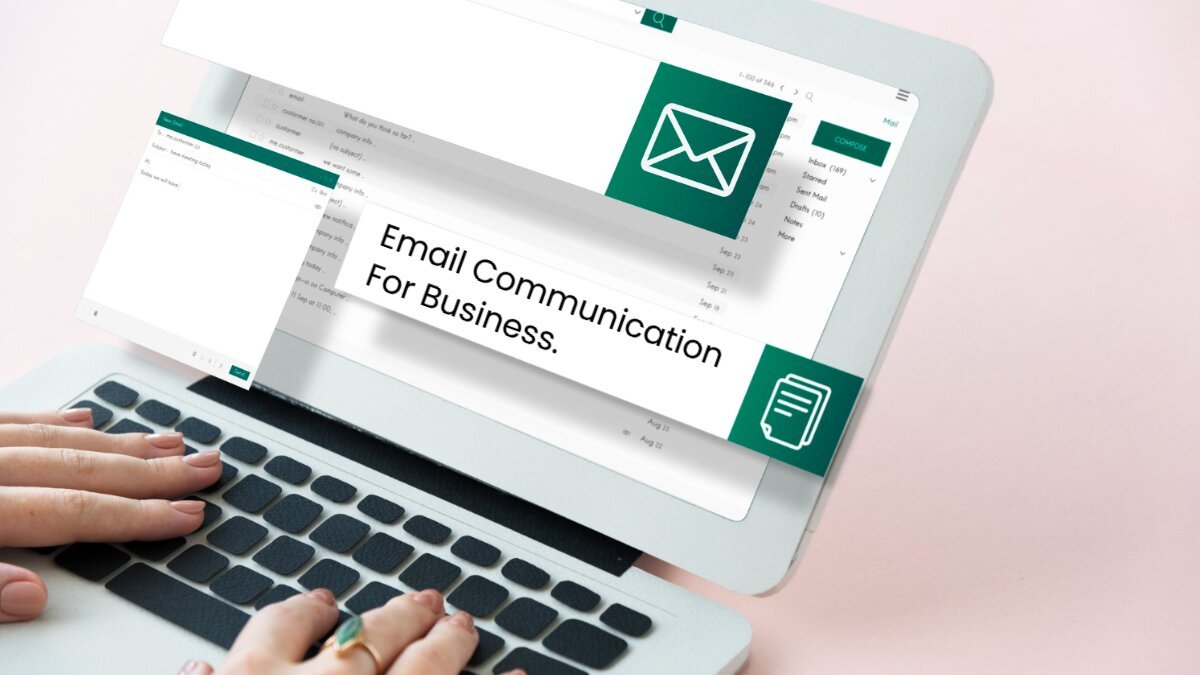Table of Contents
In today’s fast-paced digital world, businesses are constantly seeking effective ways to connect with their audience. Here comes the advantages of using email for Business communication. Email Communication is often an underestimated powerhouse that has proven to be a cornerstone for successful communication strategies. While social media and instant messaging grab the headlines, email remains trusted in its ability to foster genuine relationships, nurture leads, and drive conversions.
But what makes email such a formidable tool for business success? By leveraging its potential, you can unlock a treasure trove of benefits specifically tailored to your growth. Imagine having a direct line to your customers, showcasing your brand’s personality, and delivering personalized messages that resonate.
Why Email Communication for Business
In the digital age, businesses have an array of channels at their disposal to reach out to their customers. Among them, email stands out as an incredible tool. Despite the advent of social media and other instant messaging platforms, email remains a preferred choice for many businesses.
Why is this the case?
The answer lies in email’s unique characteristics: its ability to provide a direct, personal line of communication, its broad reach, and its potential for detailed tracking and analysis.
Email communication allows businesses to engage directly with their audience in a way that feels personal and tailored. Unlike social media, where messages can get lost in the noise, emails land directly in the recipient’s inbox, offering a higher chance of being noticed and read. This direct line of communication is invaluable for building and nurturing relationships with customers. It allows businesses to communicate in a more personalized manner, addressing customers by their names and tailoring content based on their preferences and behaviors.
Moreover, the reach of email is unparalleled. Virtually everyone with an internet connection has an email account. This universality means that businesses can connect with a broad audience regardless of demographic differences. Whether you’re targeting companies, Entrepreneurs email is a common denominator. Additionally, email marketing platforms provide robust tools for tracking and analyzing the effectiveness of campaigns, offering insights into open rates, click-through rates, and conversion rates. These analytics are crucial for refining strategies and maximizing the impact of communication efforts.
Advantages of Email Communication
One of the most significant advantages of using email communication is its cost-effectiveness. Compared to traditional marketing channels like print or television, email campaigns are relatively inexpensive. Businesses can reach thousands of customers with a single click, without the need for substantial financial investment. This makes email marketing an attractive option for small and medium-sized enterprises looking to maximize their marketing budget.
Another powerful advantages of using email communication is its speed. In a matter of seconds, an email can be crafted, sent, and received, enabling businesses to respond quickly to market changes, customer inquiries, or emerging opportunities. This quick swift is particularly beneficial in today’s fast-paced business environment, where being able to act swiftly can provide a competitive edge. Moreover, automated email marketing tools allow for the scheduling of emails, ensuring that messages are sent at optimal times without requiring constant manual intervention.
Personalization is yet another strong advantages of using email communication. Modern email marketing platforms offer sophisticated segmentation and targeting capabilities, allowing businesses to tailor their messages based on customer data. This can include demographic information, purchase history, and behavioral data. By delivering relevant, personalized content, businesses can increase engagement and build stronger relationships with their audience. Personalized emails are more likely to be opened, read, and acted upon, leading to higher conversion rates and customer satisfaction.
Disadvantages of Email Communication
Despite its numerous advantages of using email communication for business, it has its own challenges. One of the primary drawbacks is the risk of emails being marked as spam. With the increasing volume of spam emails, many recipients have become wary of unsolicited messages. If a business’s emails are perceived as irrelevant or intrusive, they may be filtered into spam folders, never to be seen by the intended recipient. This highlights the importance of obtaining proper consent and ensuring that emails are valuable and relevant to the audience.
Another challenge is the potential for email fatigue. As consumers are saturated with emails from various sources, they may become overwhelmed and start to tune out. This can lead to lower open rates and engagement levels, particularly if the content is not compelling or if emails are sent too frequently. Striking the right balance in frequency and ensuring that each email offers genuine value is crucial for maintaining the interest and trust of the audience.
Technical issues can also pose a disadvantage in email communication. Emails may not display correctly across different devices and email clients, leading to a poor user experience. Broken links, formatting issues, and images not loading properly can all detract from the effectiveness of an email campaign. To mitigate these risks, businesses must regularly test their emails across various platforms and devices to ensure a consistent and professional appearance.

Common Mistakes to Avoid in Email Communication
One common mistake in email communication is failing to personalize messages. Generic emails are less likely to resonate with the audience and can come across as impersonal. Personalization goes beyond simply addressing the recipient by name; it involves tailoring the content based on their preferences, behaviors, and past interactions with the business. By leveraging customer data, businesses can create more relevant and engaging emails that foster a deeper connection with the audience.
Another mistake is neglecting the importance of a compelling subject line. The subject line is the first thing recipients see, and it plays a crucial role in determining whether the email will be opened. A bland or misleading subject line can result in the email being ignored or deleted. To capture the uof the audience, subject lines should be concise, relevant, and intriguing, providing a clear indication of the value the email offers.
Overloading emails with too much information or complex design elements is also a common pitfall. While it’s important to provide valuable content, overwhelming the reader with excessive text or cluttered visuals can be counterproductive. Emails should be clear, concise, and visually appealing, with a focus on delivering a single, compelling message. Including a strong call to action (CTA) that guides the recipient on the next steps is essential for driving engagement and achieving the desired outcome.
How Email Communication Builds Customer Loyalty and Trust
Email communication plays a pivotal role in building customer loyalty and trust. By consistently delivering valuable and relevant content, businesses can establish themselves as trusted authorities in their field. Educational content, industry insights, and helpful tips can position a business as a valuable resource, fostering a sense of loyalty and trust among recipients. When customers perceive a business as knowledgeable and reliable, they are more likely to remain loyal and continue engaging with the brand.
Regular communication through email also helps to keep the brand top of mind. By staying in touch with customers and providing updates on new products, services, or promotions, businesses can maintain their presence in the customer’s consciousness. This ongoing engagement is crucial for nurturing long-term relationships and encouraging repeat business. Personalized emails that acknowledge and reward customer loyalty, such as exclusive offers or personalized recommendations, can further strengthen the bond between the business and its customers.
Additionally, email communication allows for the collection of valuable feedback from customers. By soliciting opinions, conducting surveys, or encouraging reviews, businesses can gain insights into customer preferences and pain points. This feedback is invaluable for improving products, services, and overall customer experience. When customers see that their opinions are valued and acted upon, their trust in the brand is reinforced, leading to increased loyalty and advocacy.
Key Takeaways:
Embracing Email Communication for Business Growth
In conclusion, email communication offers a multitude of advantages that can significantly contribute to business success. Its cost-effectiveness, speed, and personalization capabilities make it a powerful tool for engaging with customers and driving conversions. However, it is essential to be mindful of potential challenges, such as the risk of being marked as spam, email fatigue, and technical issues. By avoiding common mistakes and focusing on delivering valuable, relevant content, businesses can harness the full potential of email communication.
Building customer loyalty and trust through email is a long-term strategy that requires consistency and dedication. By positioning the business as a trusted authority, maintaining regular communication, and valuing customer feedback, businesses can foster strong, lasting relationships with their audience. As we move forward in the digital age, email communication will continue to be an indispensable channel for businesses looking to grow and succeed.
Embrace the power and advantages of using email communication for business to unlock the numerous benefits it offers. With the right approach, email can transform your marketing strategy, enhance customer relationships, and drive substantial growth for your business.
Share:


